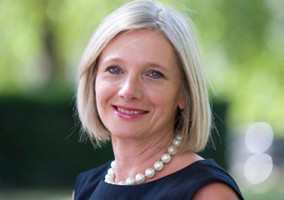Grantmaker Lankelly Chase recently decided to close because “the system itself is at its limits”, its former chair has said.
Last July, Lankelly Chase announced that it would close in the next five years and redistribute its more than £100m of assets.
Myron Rogers, former chair of the foundation, said he recently stepped down after six and a half years as it “no longer made sense to have three white men at the helm of our charity”.
Speaking at Civil Society Media’s Trustee Exchange yesterday, he said: “We needed a different perspective, a different way of thinking about things.
“We’re going to relinquish control, and we have decided to relinquish control of our assets – including the endowment, and all the resources, all the knowledge resources we have, all the people that we have – so that money can flow freely to those doing life-affirming social justice work.
“But we will make space to reimagine how wealth, capital and social justice can coexist in service of all life and to future generations.
“So, it’s not a spend down. It is actually rethinking how we use these funds and who uses them and how they use them.
“And how we engage people in the development of the next iteration of what philanthropy might look like, including not being philanthropy.”
‘Separation is everywhere you look in the charity model’
Rogers said separation exists in the sector and that a system change is required.
“Since 2021, when our mission honed in on severe and multiple disadvantages, we’ve been clear that social problems are complex, and that any shift in a problem requires a corresponding shift in the system surrounding it,” he said.
“Outcomes, we said, emerge from the interrelation of the parts of a system, not just the parts themselves.
“Our position around systems view is that it’s a critique of the dominant model of philanthropy or charitable model in which individual organisations are encouraged to credit themselves with outcomes that can only be created by factors well beyond that charities control.”
Rogers said “separation is everywhere you look in the charity model”, for example, “the way the foundations earn money on the stock market is entirely separate in the modality and ethos from the charitable purposes on which it is spent”.
“There are inherent contradictions in what we do, and they can’t go away”, he added, as “the system itself is broken”.
Change of trustees
Lankelly Chase, Rogers said, “struggled to overcome separateness for years”.
“Even from our position, trying to overcome that separation has included profound change in our board, there are actually only two board members, I am one of them, who’ve been there, for any real length of time.
“The board has fundamentally shifted, and we think it’s going to shift again. Because as we move further and further into our destination, we’re going to find that we do not have the right people.”
Rogers said the charity had “found it incredibly challenging work” to overcome its separations.
“For those in the frontline, it’s often a bruising environment, we’ve seen people celebrated for doing integrated holistic work and we’ve seen the same people burnt out or become ill trying to fight a system of separation,” he said.
“We’re proud of the network place-based participatory approaches that we’ve supported and are engaged in, we pushed these approaches and ourselves as far as we think they can go.
“As much as we’ve worked on them, we don’t think that they can go any further, that the system itself is at its limits and requires something different, a different perspective, a different way of being.
He said that if charities try to operate within the system, “the requirements of that system will just creep in and take over”.












